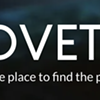It's The Technology, Stupid
America's biggest weapons are its inventions
So far, the government has only managed to seize a mere 70,000, and more pour into the country daily despite the fact that they're banned.
Every day, about a quarter of the country's population tunes in to any one of about a dozen competing satellite television stations beamed at them by Iranian exiles in Los Angeles that offer entertainment, talk shows and political debate.
The country's efforts to censor Iranian weblogs — there are now 75,000 according to the Guardian UK — aren't going so well, either.
With the help of networks of Iranian citizens who communicate with Iranians outside the country by cellphone and e-mail, many of these blogs hammer the government on a daily basis. According to another analysis by the Guardian UK, Farsi, the national language of Iran, is now the fourth most common language used in cyberspace.
Meanwhile, over in Bahrain, the information ministry has been trying in vain since 2002 to shut down webmaster Ali Abdulemam. They arrested him again in March for anti-government commentary published on his website, Bahrainonline.org. The arrest had little impact on the site's popularity — some of his friends transferred it to another server outside the country so quickly, Bahrainian web surfers barely had time to notice it had momentarily disappeared.
According to the Gulf Daily News, the site gets about 80,000 hits a day, which is remarkable when you consider that Bahrain has a population of only 680,000 people.
Here's what's fascinating as well as ironic: the technology that is making this possible — the personal computer, the computer server, the Internet, cable television, satellite television and the cellphone — are all American inventions that are permeating the Middle East in large numbers.
In its neverending quest for new markets in which to make money, the stunningly efficient American industrial marketing machine has led the way in bringing technologies to the world that are hooking up young people in internet cafes in the Middle East to the outside world.
Thanks in large part to American ingenuity — or greed, depending on your perspective — the Iranian mullahs must now compete for credibility with the very exiles they so easily ground beneath their heels as recently as a decade ago. The Bahrainian information ministry is growing more useless by the day as its own citizens mock online what it presents as fact in the government-controlled media.
Of course, millions of Americans lost a lot of money, even their life savings, in the tech boom and bust. And then there's the perfidy of Enron where executives jumped the sinking corporate ship with millions of dollars that rightfully belonged to Joe Average, who was also simultaneously ripped off by sleazy analysts and security salesmen.
This is America in all its glory. A shining beacon of hope powered by the most successful free market system the world has ever known. A place with a barely contained, unseemly underbelly of greed and ambition that has slit the throats of corporate rivals and smalltime investors while bringing technology to the rest of the world that will make it harder and harder to repress its people.
Although few people realize it yet, in the long run it's our technology, not our military, that will be our most powerful weapon in the Middle East and backwater thugocracies around the globe.
I first used the Internet just 10 years ago. It is newer still to much of the Middle East. The fact that the world's attention is now more focused on the Middle East then it has been in decades because of September 11 and the Iraq war only complicates matters for its repressive regimes. Today, when a woman in Pakistan is raped as punishment for an indiscretion her brother allegedly committed, then put under house arrest to stop her from talking about it, the whole blogosphere knows within a few days. Crowds show up at Pakistan's embassies to protest. Pakistan's Prime Minister Pervez Musharraf is forced to cut off interviews with the press during a trip to New Zealand to avoid difficult questions and our own President is made to squirm over his alliances with the man. If that's not American, I don't know what is.
So this July 4, let's take a break from our collective obsession with America's faults and flaws long enough to appreciate the many ways in which America impacts the world around us for the better. The list is a long one.
Speaking of News_citizen.html
-
They Still Don't Get It
Jul 13, 2005 -
Welcome Criminals!
Jul 6, 2005 -
Rainmaker to the Powerful
Jun 22, 2005 - More »











